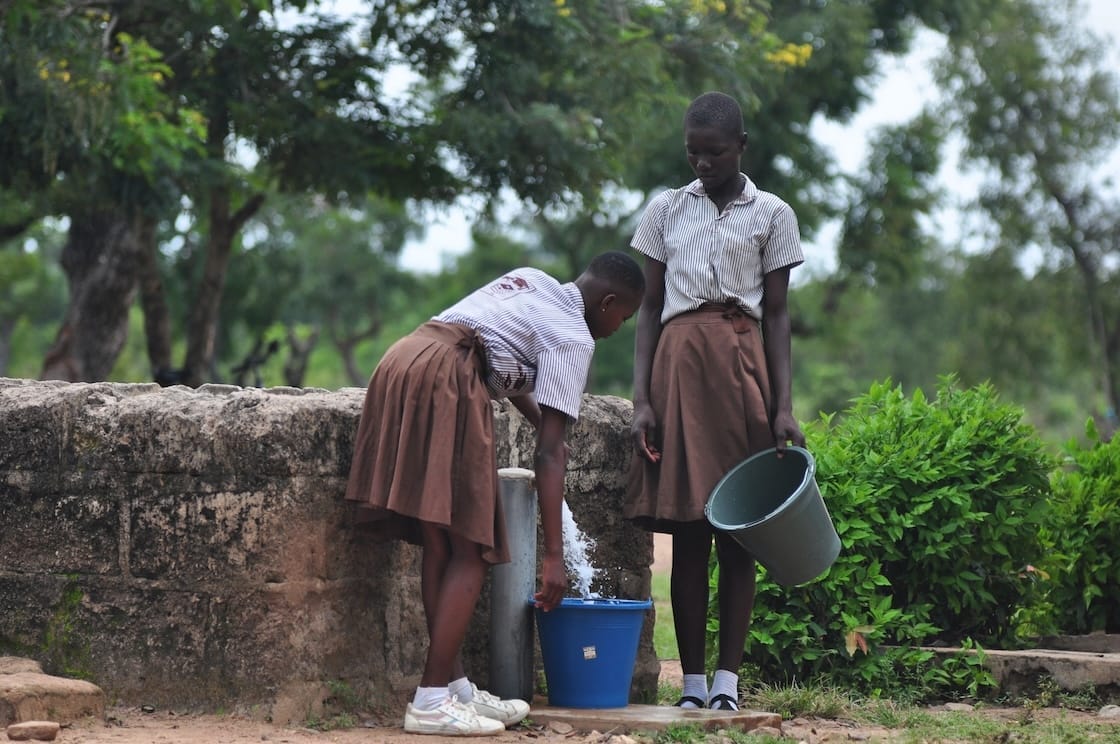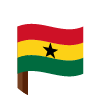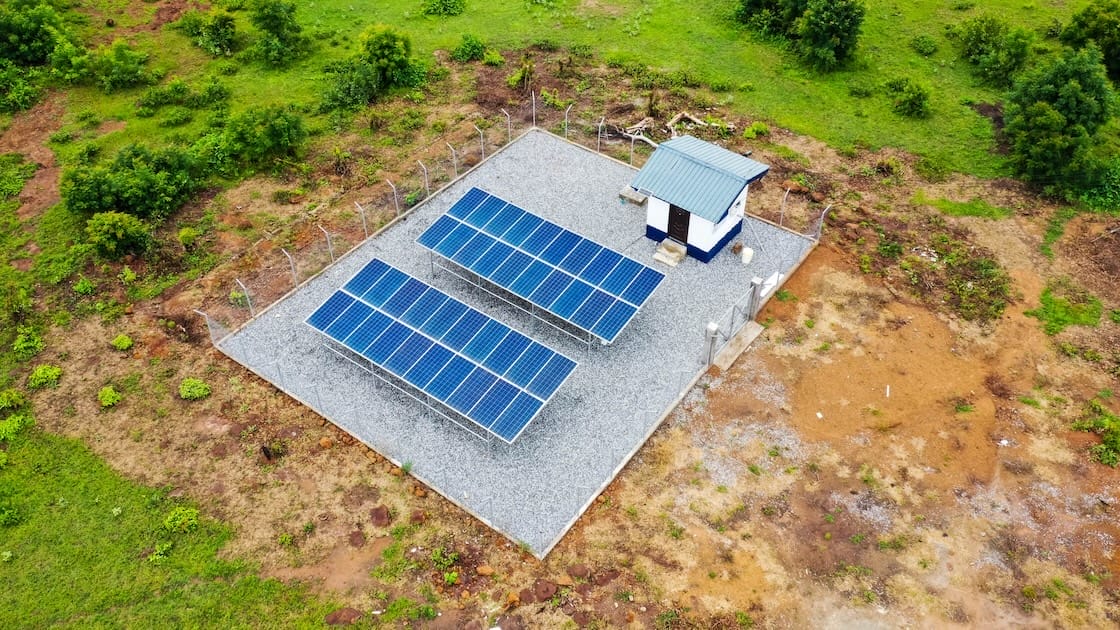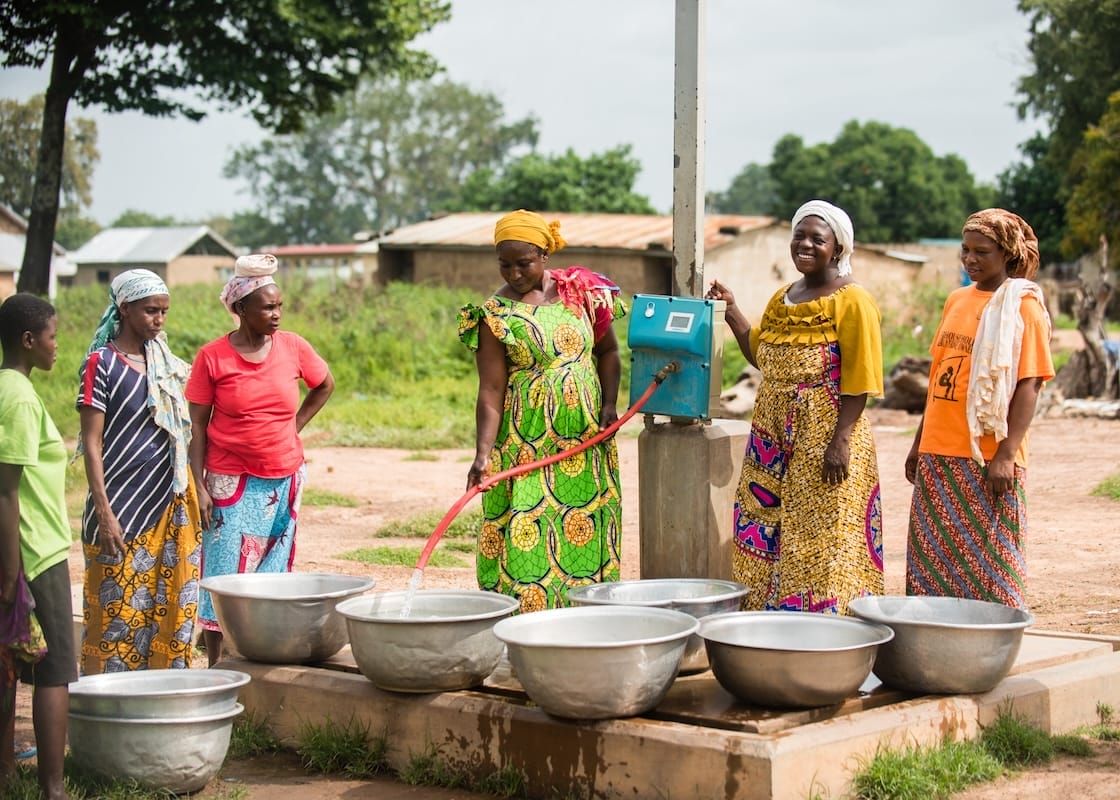

Ghana
In 2023, Global Communities continued to build on over a decade of experience creating sustainable improvements in water and sanitation access in Ghana. Currently, we are implementing the Enhancing Water, Sanitation and Hygiene (En-WASH) Activity, funded by the United States Agency for International Development (USAID).
Although the Government of Ghana has made significant process, 80% of diseases in Ghana are caused by unsafe water and poor sanitation. Urban-rural disparities continue for safe water access and sanitation infrastructure, especially in the north, where only 44% of households have improved water sources. Women, who often benefit most from improved WASH, bear the burden of water collection while being largely excluded from decision-making.

"Today, because of this water system, the issue of cholera and skin rashes are no more."
Alex Kwaku Osei
Huniso community leader
Through En-WASH, which began in October 2021 and will continue through September 2026, it is anticipated 300,000 people will gain access to basic sanitation services, and 250,000 people will gain access to basic drinking water services in the Northern, Upper East, Upper West, Northeast, Savannah and Oti Regions. Additionally, En-WASH is supporting metropolitan, municipal and district assemblies (MMDAs) to enable 70% of target communities to be certified as Open Defecation Free and 60% of households to adopt and sustain improved WASH practices.
During 2023, our En-WASH team focused on strengthening the capacity of local government officials, school administrators and health facilities to efficiently plan, budget, implement and monitor WASH services. We also worked with the Government of Ghana and MMDAs to attract more private companies to invest in WASH services, particularly in rural areas.

"We no longer trek for hours in search of water. It’s right here, within our reach. This project is a blessing, a game-changer."
Barikisu
Mandari community member
Within the communities we serve, we focused on educating civil society and faith-based organizations as well as village savings and loans associations on positive WASH behaviors and advocating for more public resources for WASH.
By year’s end, the En-WASH team also completed a Gender Equality and Social Inclusion (GESI) Analysis to better understand gender norms and power dynamics which influence the accessibility, responsiveness and sustainability of WASH services in northern Ghana.
